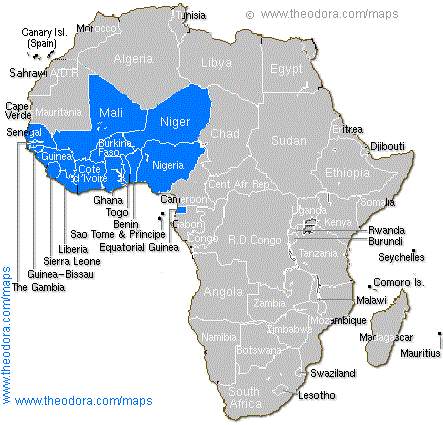
| The African Continental Free Trade Area Agreement which entered into force on May 2019 will create the largest free trade area in the world |
| LOMé, Togo, The ECOWAS Commission, in collaboration with the United Nation Economic Commission for Africa (UNECA), organized a meeting on 23-25 November 2021 in Abidjan – Cote d’Ivoire, to review the draft Regional AfCFTA Implementation Strategy as part of preparations towards a regional validation workshop by ECOWAS Member States. The African Continental Free Trade Area Agreement which entered into force on May 2019 will create the largest free trade area in the world. According to estimates, the AfCFTA will connects 1.3 billion people across 55 countries with a combined gross domestic product (GDP) valued at US$3.4 trillion. In his opening remarks, the representative of UN Economic Commission for Africa (UNECA), Mr. Amadou DIOUF highlighted initiatives being undertaken by UNECA towards the implementation of the AfCFTA, including supporting the development of national AfCFTA implementation strategies. He underscored the role of Regional Economic Communities as the building blocks for African economic integration and commended the ECOWAS Commission for initiating the development of the regional implementation strategy which would complement efforts being taken at the national level. Speaking on behalf Mr Tei KONZI, Commissioner for Trade, Customs and Free Movement of the ECOWAS Commission, Mr. Kolawole SOFOLA, Acting Director of Trade, recalled the coordination role of the ECOWAS Commission in the negotiation and implementation of the AfCFTA Agreement. Whilst emphasizing the importance of the development of implementation strategies, he stressed the need to strengthen regional and continental value chains. He added that the development of an ECOWAS regional implementation strategy will ensure a coordinated, integrated and coherent implementation of the AfCFTA. Prof. Loesse Jacques ESSO, Director of Cabinet, representing Mr. DIARRASSOUBA, Minister of Trade and Industry of Cote d’Ivoire, highlighted the low level of intra-Africa trade which counts for 16 % in 2021 according to the World Bank. He added that the launching of the AfCFTA demonstrate the political commitment of African Heads of States in using intra-Africa Trade to face the challenges of structural transformation of economies, create opportunities for youth employment and wealth creation, as well as poverty reduction. In addition he highlighted the efforts undertaken by the Ivoirian authorities to lay down the basis for AfCFTA implementation including the establishment of the AfCFTA Committee and the development of a national implementation strategy. The meeting was attended by Experts from ECOWAS Member States, as well as officials from ECOWAS and UEMOA Commissions. Participating partners included UNECA, UNDP and GIZ. |
